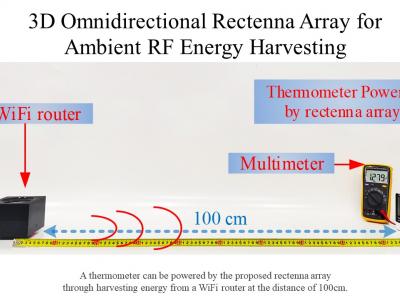Wireless Power Transfer (WPT)

The mainstream battery pack voltages of electric vehicles (EVs) range from 200 V to 500 V. Compared with these conventional 400-V battery packs, 800-V EVs have smaller cables, higher charging power, and a longer range. Although existing literature has overcome the drawbacks caused by one or two parameter variations in a 400-V EV WPT system, few works discuss the Z classes, output voltages, and output power levels simultaneously.
- Categories:
 189 Views
189 Views
Due to the range of battery capacities in different electric vehicles (EVs), wireless power transfer (WPT) systems need to have a large variation in the output power. Since conventional systems are usually designed for a custom specification, the power and efficiency may be significantly reduced due to the need for interoperability between ground assembly and vehicle assembly with different power ratings. To address this issue this paper proposes a DC-link parallel AC-link series (DPAS) multi-inverter multi-rectifier (MIMR) architecture for high-power WPT systems.
- Categories:
 113 Views
113 Views
Conventional high-power wireless power transfer (WPT) systems suffer from hard switching, current sharing, and crossing coupling issues when providing a wide-range power supply. To improve the power level and regulation performance, we propose a new resonant inductor integrated-transformer based multi-inverter (RIIT-MI) topology for the high-power WPT system. A flexible power capacity can be achieved by increasing the number of inverters. A wide power regulation range with soft switching can be achieved without adding additional components.
- Categories:
 207 Views
207 Views
Most present wireless power transfer (WPT) systems are designed for 400-V EVs and its compatibility for a higher battery pack voltage is barely studied. To adapt for different WPT charging scenarios, this paper proposes a resonant inductor integrated-transformer (RIIT) based receiver. The design guideline, power losses, and power transfer capacity of the proposed system are presented. The proposed receiver is compact, low-cost, reliable, easy-to-implement, and compatible for WPT systems with different battery pack voltages without any significant change of system parameters.
- Categories:
 167 Views
167 ViewsThis paper proposes methods of predicting and preventing thermal failure within high-power ferrite structures of electric vehicle (EV) wireless charging inductive power transfer (IPT) by improving their ferrite layouts. A high-power IPT magnetic design suitable for wirelessly charging an EV at 50 kW using a heuristic approach is presented where the chosen design achieves reduced heating within the magnetic structure. Recommendations are made that both avoid ferrite fracturing due to magnetic hotspots and cause temperature differentials across ferrite tiles, and regarding airgap distribution
- Categories:
 460 Views
460 ViewsAn inductive power transfer (IPT) system is envisaged as the best solution to conveniently charge electric vehicles (EVs). While stationary IPT systems are becoming commercialized, significant research is being conducted to address the challenges related to dynamic IPT systems. Dynamic or in-motion IPT systems require a fully electrified roadway with embedded inductive couplers with accompanying circuitry. The large number of electronic components required, however, increases the system complexity, reducing the reliability and economic viability of dynamic IPT systems proposed to-date.
- Categories:
 536 Views
536 Views

